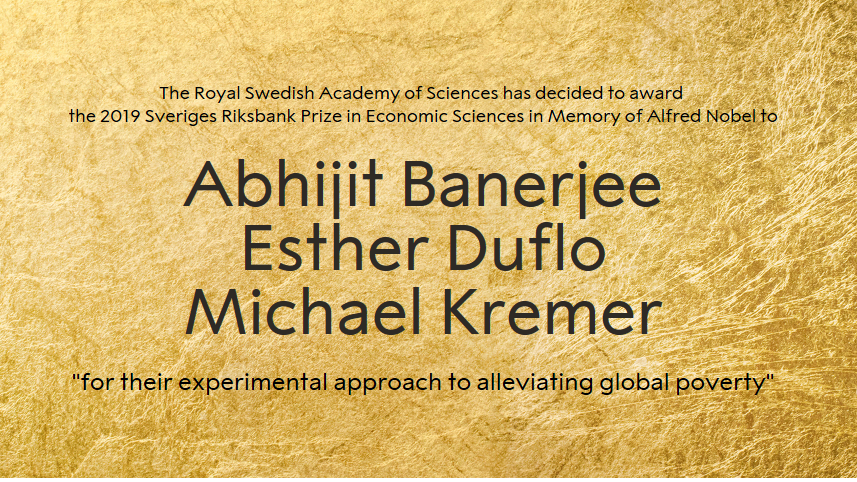Nobel Prize in economics awarded to trio for work on poverty. One is the youngest winner ever
A trio of economists were awarded the Nobel Prize in economic on Monday for their work to alleviate global poverty. Abhijit Banerjee, Esther Duflo and Michael Kremer pioneered an approach to poverty reduction that was based on carefully designed experiments that sought answers to specific policy questions, according to the prize committee.
Duflo, a professor at the Massachusetts Institute of Technology, is the youngest person and second woman to be awarded the prize. Kolkata-born Banerjee, her husband,is also a professor at MIT. Kremer, a professor at Harvard, used field work to test how school results could be improved in western Kenya during the mid-1990s.

As a direct result of their research, more than 5 million Indian children had benefited from remedial tutoring in schools, while many countries had introduced heavy subsidies for preventive health care, according to a statement from the Royal Swedish Academy of Sciences, which awards the prize.
Peter Fredrikkson, chairman of the economic sciences prize committee, told reporters that their work tested the impact of specific interventions in areas such as agriculture, health and education. The experimental approach has “reshaped development economics, had a clear impact on policy and improved our ability to fight global poverty,” he said.Duflo, 46, said via a phone call from the United States that “the essence of our research is to make sure that the fight against poverty is based on scientific evidence.”She also said that she hoped the award would inspire other female economists to continue working, “and men to give them the respect they deserve, like every single human being.”
The American economist Elinor Ostrom was the first woman to be awarded the prize. Ostrom won in 2009 for an analysis of how people in local communities share natural resources equitably and sustainably without central regulation. She died in 2012.Since 1968, 51 economics prizes have been shared between 84 laureates. Banerjee, Duflo and Kremer will share a prize of 9 million Swedish kronor ($914,207).Last year, Yale University professor William Nordhaus and Paul Romer, of New York University’s Stern School of Business, received the award for addressing questions around sustainable economic growth.
The prize, officially known as the Sveriges Riksbank Prize in Economic Sciences, was not instituted by Alfred Nobel. It was established by Sweden’s central bank and is awarded in memory of Nobel.




